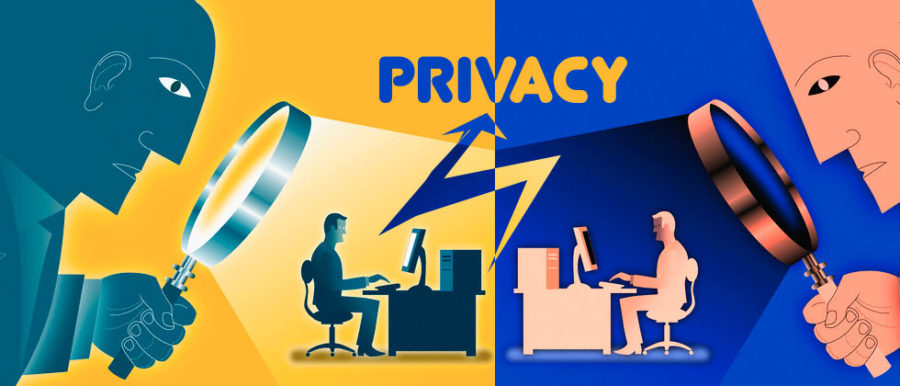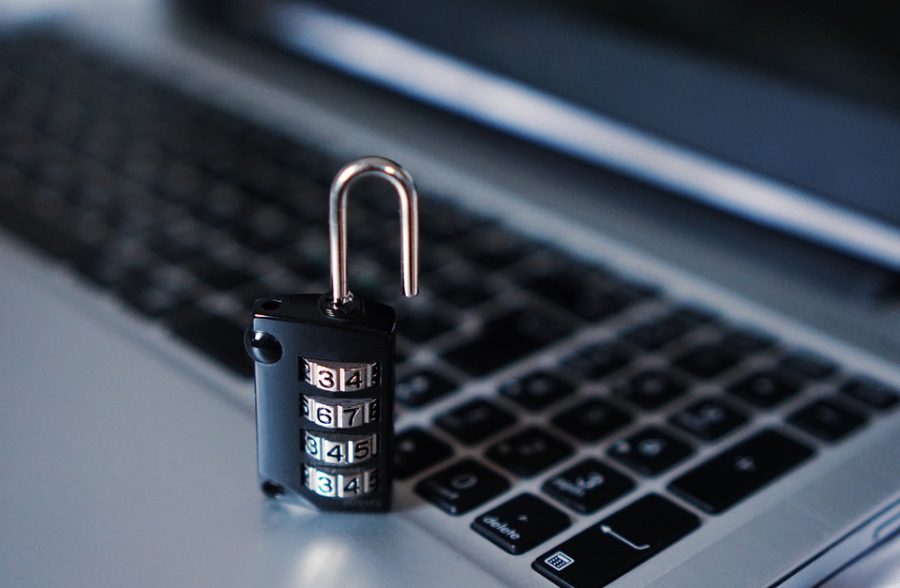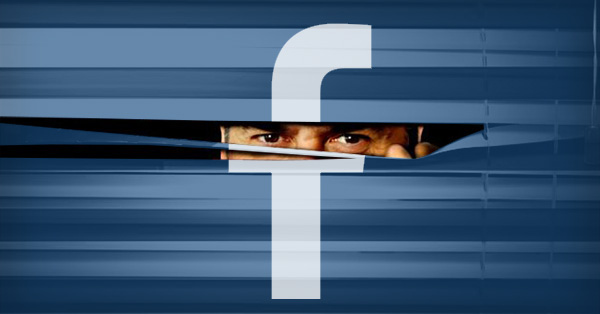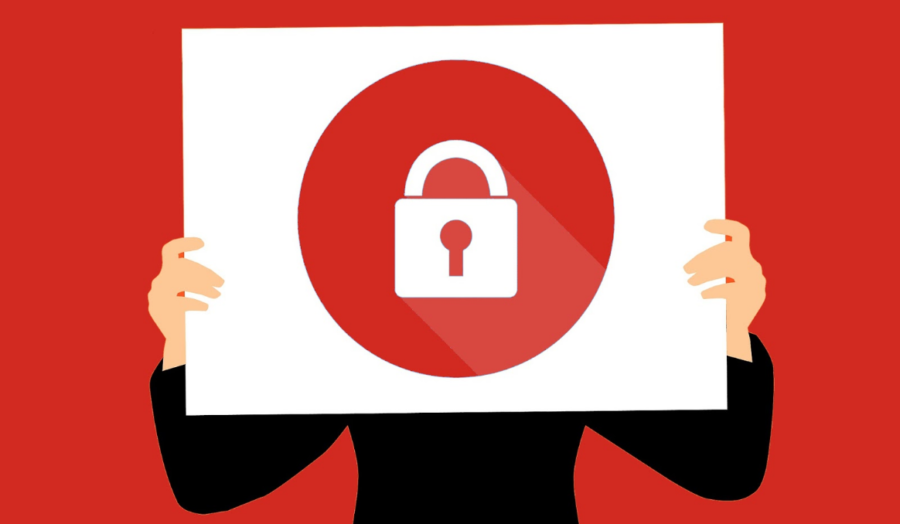Pro-poor advocates are rightly concerned that the digital world is replicating, if not reinforcing, oversight and oversight. The 'right to be alone' is important in the sense that we need autonomy in deciding which part of ourselves to share with society …

Original material by Stéphane Lavoie
The modern understanding of privacy was first described in the landmark essay, The Right to Privacy, in 1890. Its authors, Samuel Warren and Louis Brendyce (the latter eventually became a member of the US Supreme Court), were thriving American lawyers who became concerned about the paparazzi's use of a powerful new technology – the camera. “Recent inventions and business practices are calling attention to the next step to take to protect people,” they wrote. “Instant photos” and “countless mechanical devices” threatened the collection and dissemination of private information. In response, lawyers raised the question of whether everyone has a “right to loneliness.”
The Warren-Brendays essay is notable for its expansion of the legal notion of privacy, in which the definition of privacy was rather broad. Their arguments have become more relevant 130 years later. The power and ubiquity of the internet has created a breach of that integrity on a scale that Victorians never dreamed of. Last year's Cambridge Analytica scandal revealed that 87 million users' personal data Facebook was used to create psychologically hitting news and propaganda campaigns to win over voters in key elections in the US, UK and Mexico.

But that scandal can only be viewed as a brick in the wall of confusion built between users and the technologies they use, especially if a service like Facebook makes money selling targeted ads to its users.
As a response to this, a new wave of companies are monetizing this new opportunity by offering paid services with increased security. The 'right to be alone' is now a payable right. Gartner predicts that worldwide security software purchases will total $ 6.6 billion in 2019. A 2014 New York Times contributor 'managed' to spend $ 2,200 trying to protect his own privacy through a number of such services.
But there's a problem. These services reflect the growing value of privacy, not as a right, but as a premium product. Privacy is something extra, you have to fit in and pay for the right to use it. And those who continue to use ad serving 'free' platforms, apparently not understanding the risks of sharing their information or being unable to overpay for their online privacy, find themselves on the wrong side of a new digital divide.

This kind of effective discrimination on the basis of being in a low-income community is nothing new, nor is invasion of privacy. People claiming subsidies for their financial situation in the United States may be subject to sudden searches and interrogations, aggressive surveillance, urine drug tests, and DNA testing of their children. The rationale and rationale behind all this is that low-income citizens must give up their right to privacy in exchange for basic services. And this, despite all the promises and assurances of neutrality and equality, is no exception to the rule.
“No laws prohibit financial discrimination,” laments Michelle Gilman, professor of law at the University of Baltimore School of Law and co-author of Privacy, Poverty, and Big Data: A Vulnerability Matrix for Poor Americans.
Gilman: “The potential harm of such a privacy deal hits these social groups even more. People who live below the poverty line are vulnerable to targeted attacks because of their economic situation, for example, from extortionate financial products or educational programs. And according to their digital profiles, they can lose the opportunity to buy a house, get a job and get an education when property owners, employers and representatives of educational institutions resort to technical screening and associate poverty with undesirable traits. '
The study concluded that “pro-poor advocates are rightly concerned that the digital world is replicating, if not reinforcing, oversight and oversight. “The right to be alone is important in the sense that we need autonomy in deciding which part of ourselves to share with society,” Gilman said. Her work is backed by Tim Berners-Lee, the creator of the world wide web, who last November proposed a 'web contract' that would set clear rules, laws and standards as the foundation for today's internet. It is proposed to include among them the fundamental right to privacy.
Gilman believes that social media companies will soon be able to offer paid options with enhanced privacy to users, while offering free services to those who donate their information. This option, in her opinion, “will only exacerbate the gap between those who enjoy privacy and those who do not, as well as exacerbate economic inequality.”

And it's not just about poor Americans: there is a 'hunt' for entire countries. In 2015, the company Facebook launched Free Basics (formerly internet.org), a mobile application that provided free internet access to users in developing countries. In Facebook they promised to help people get online by providing stripped-down versions of Facebook, Wikipedia, ESPN and other services.
But in 2017, a Global Voices report revealed 4 different Free Basics motives. The application actively encouraged users to register and log in to Facebook and divided third-party services into two levels, visually highlighting separate arrays of information. User activity was passed through servers Facebook, generating even more user data. The company Facebook did not introduce people to the open internet – instead, it grabbed another digital frontier outside the United States. The company responded by claiming that the Global Voices study did not capture the millions of people who had positive experiences with the service, but by then the Free Basics initiative had already been branded as 'digital colonization'.
The vulnerabilities faced by low-income communities on the web are changing. Mark Zuckerberg released a 3,000-word manifesto last month in which he outlined his plan to transform Facebook into a more 'privacy-focused' service. Between the lines of his usual sermons and reflections, he talked about the company's plans to nudge users towards encrypted private correspondence and distance them from the news feed.
Zuckerberg: “I believe that in the future of the internet, privacy-focused platforms will take precedence over today's open platforms. Privacy gives people the freedom to be themselves and to interact more naturally with other people, which is why we create social networks. '
Critics believe this is a common move to “cover the rear” of the company. Efforts to neutralize recent setbacks Facebook faced high costs and regulatory hurdles. Some believe that the planned movement of information between their messaging applications allows the company to effectively shield itself from the inevitable attention of antitrust authorities and that the attraction of users to a closed network with end-to-end encryption will free the service from the need to moderate information stuffing, hate speech and disinformation about vaccines. distributed on the platform.

“It would be very good if this were the case, but there is a lot of mistrust [about this step towards privacy],” said Ann Kavukyan, head of the Ryerson University's Privacy Training Center in Toronto. The growing digital divide over privacy is worrying, but as Kavukyan points out, more worrying is the transformation of this phenomenon into an element of luxury, but above all it is a common, albeit valuable, resource.
Kavukyan: 'It shouldn't be normal that you need to protect your privacy the same way you would with a house by building a wall around it. The house is yours, and no one has the right to take it from you on a whim. '
In 2007, Kavukyan was invited to the office Facebook to speak with Mark Zuckerberg and Chris Kelly, the company's first head of privacy. She said the company at the time seemed to be actually committed to protecting privacy. Kavukyan believes that this business model changed when Sherrill Sandberg took over as head of the unit in 2008: “They took the 'we'll make a lot of money' path, and then privacy cracked at the seams.”
Original material by Stéphane Lavoie
It has long been clear that users have become a kind of currency for large corporations who are not averse to collaborating with advertisers. But selling users their own privacy? What's next? This position of individual companies is perceived as a step back into the past, in which, interestingly, these same companies were “beating themselves in the chest”, proclaiming themselves to be the defenders of privacy. And nothing prevented them from subsequently taking advantage of the trust of users and making money on the data they provided.
I agree with the author and do not consider the correct approach to stratification of users into those who are willing to pay and those who are ready to sacrifice their data in exchange for mythical freedom. I carefully read every post by Zuckerberg on Facebook, I get the feeling that they are still clearing up the situation with Camridge Analytica, he is doing his best to return a positive image to the image of his product. But are users willing to continue to believe them? Doubtful.
